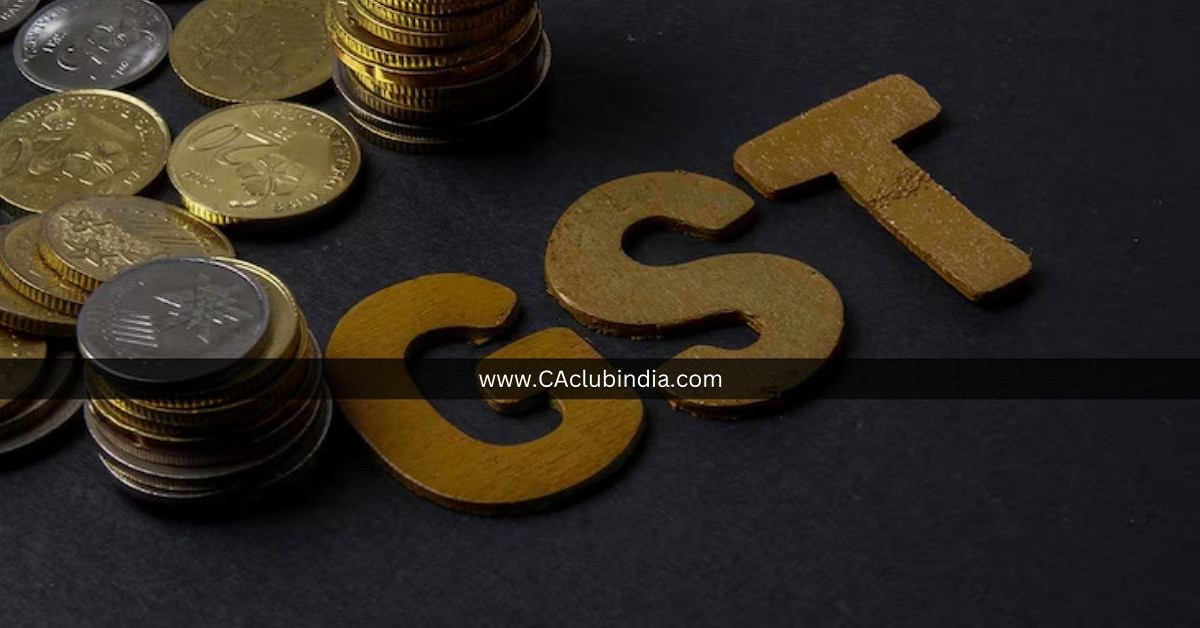In a fictional dialogue between Arjuna and Krishna, the concept of a faceless GST system is explored following a recent statement by Delhi Chief Minister Rekha Gupta. She emphasized the need for a transparent, online dispute resolution mechanism in GST, similar to the faceless system in income tax assessments. Krishna explains that such a system would eliminate physical visits to tax offices, reduce harassment, prevent misinterpretation of laws, and bring accountability. It would also speed up dispute resolution, curb delays caused by irrelevant document requests, and ultimately benefit the entire nation by ensuring timely tax collection, boosting public funds, reducing government borrowing, and creating jobs. The conversation highlights that a faceless GST system is not only taxpayer-friendly but also vital for economic growth and trust in governance.

Arjuna (Fictional Character): Krishna, I heard Delhi's Chief Minister Rekha Gupta during the third Accounting Standard Day recently spoke about making the GST system faceless and transparent during GST disputes and such matters. What does that mean?
Krishna (Fictional Character): Arjuna, a "faceless" GST system means taxpayers don't have to visit GST offices physically. Everything, i.e. right from filing the reply to attending the hearing and resolution of dispute is done online. This helps make the system more efficient, streamlined, transparent and reduces pressure on taxpayers and removes the fear of being harassed by some officers. As the faceless assessment is being introduced in Income Tax assessments and is working efficiently there is also a need to introduce the same in GST disputes also.
Arjuna (Fictional Character): That sounds helpful! But why is there such a big talk about this now?
Krishna: Arjuna, Delhi CM highlighted that over ₹80,000 crore in GST dues of Delhi Government are still pending due to disputes and delays. She praised Chartered Accountants for helping solve these tax issues and stated that such faceless system will help in resolving the disputes fast.
This system should be implemented not just in Delhi but across India in each state for fast and timely resolution of the dispute. This system should be Transparent, friendly and fair. It's about trust and ease.
Arjuna (Fictional Character): Krishna, will making the GST system faceless also reduce wrong interpretation of tax laws and harassment by some officers?
Krishna (Fictional Character): Yes, Arjuna. That's one of the biggest advantages. When everything is online, officers cannot twist or misinterpret the law as per their own understanding. Every instruction, query, requirements, notice or order is recorded digitally. This ensures transparency and accountability. It also protects honest taxpayers from being held liable to pay tax on transactions that are actually not taxable. When systems are automated and faceless, decisions are based more on facts and less on personal opinion. This way, taxpayers feel safe, and officers and taxpayers both follow the law more carefully.
Arjuna (Fictional Character): Krishna, many times during physical hearings for any notice issued, taxpayers or their representatives are asked to bring unnecessary and irrelevant documents and then given another date. Doesn't this delay the resolution of disputes?
Krishna (Fictional Character): Arjuna, you are absolutely right. This practice of asking for irrelevant documents and giving repeated dates what we call as "tarikh pe tarikh" wastes everyone's time. It causes mental stress for taxpayers and delays justice. But in a faceless and digital GST system, everything is tracked online. Officers will have to mention their queries clearly on the portal, and all timelines and responses will be recorded. Since the process is transparent and visible to higher authorities, officers cannot misuse their power or delay a case without reason.
Arjuna (Fictional Character): That's interesting. But how does this help the entire Nation and not just businesses?
Krishna (Fictional Character): Arjuna, when taxes are collected smoothly and on time, the whole nation benefits:
1. Better government funds -The government has a steady cash flow to fund essential services like healthcare, education, infrastructure, social welfare schemes, etc.
2. Fewer loans - With strong and timely tax collections, the government's borrowing reduces. This helps in saving on interest costs and as they say, "Money saved is Money earned".
3. Infrastructure Development - With steady income, the government can allocate more funds towards Defence, Railways, Roads, Energy and can create Digital Infrastructure.
4. Jobs Creation - Government spending creates jobs indirectly, and when businesses grow, they also hire more people.
Arjuna (Fictional Character): That's amazing, Krishna! So, implementing the faceless GST system is not just about making GST easier, but it also helps the economy grow?
Krishna (Fictional Character): Absolutely, Arjuna. Just like how GST processes are already moving online such as filing returns, refund applications, replying to notices, the GST registration process, generating E-way bills and E-invoices, Invoice Management System dashboard, all these systems are somewhere interconnected with each other. Similarly, to ensure smooth processing and quick resolution of GST disputes, a faceless GST system must be implemented.
A clear and efficient faceless system builds trust, promotes transparency, and opens up opportunities for more businesses to enter the formal economy. When rules are fair, straightforward, and easy to follow, businesses can grow, and the entire nation thrives. This faceless GST system ensures a hassle-free process that benefits everyone.








 CAclubindia
CAclubindia
